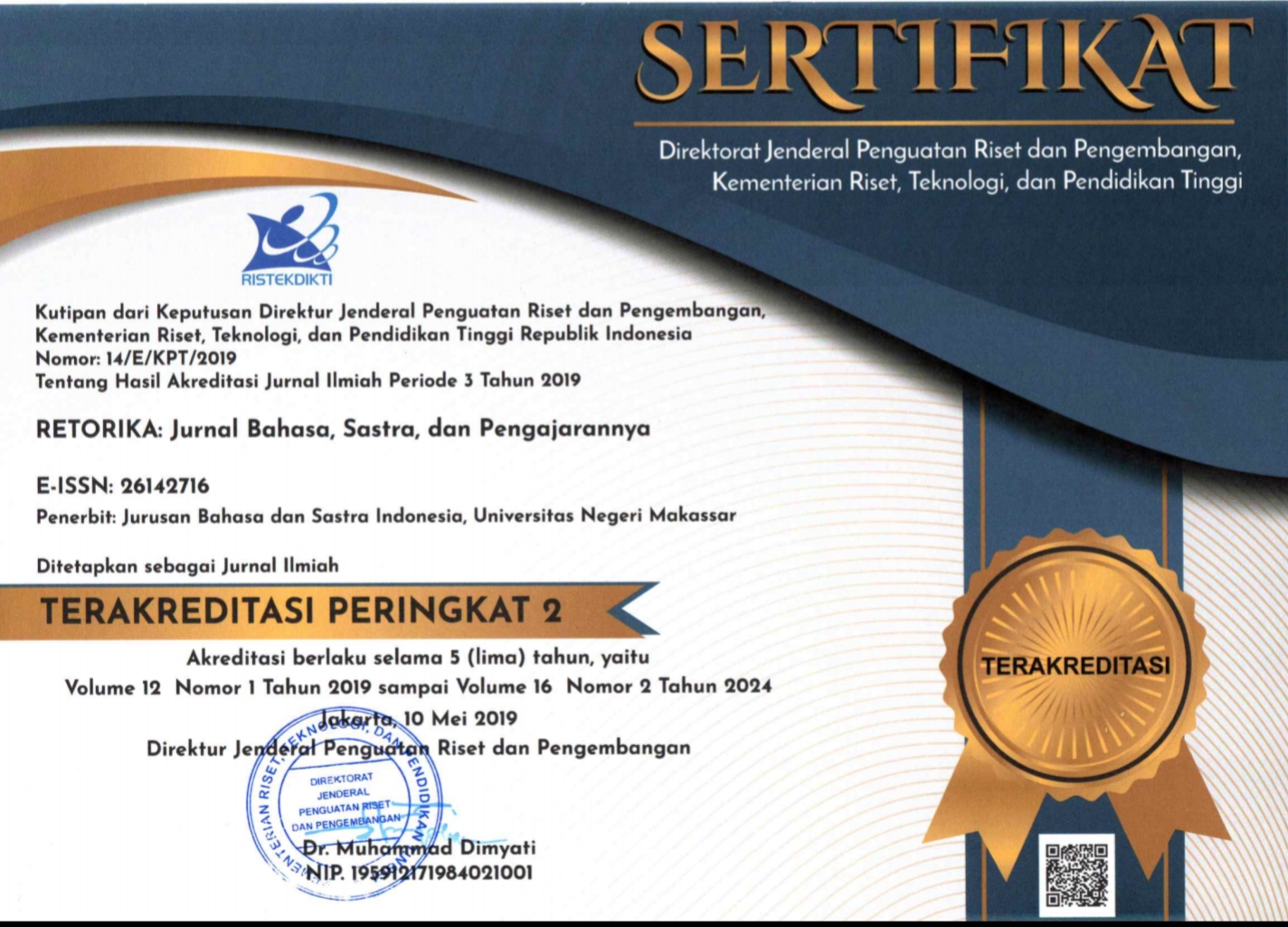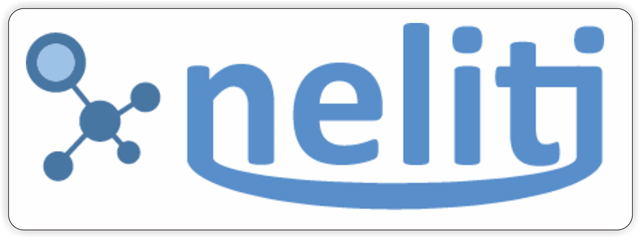FUNCTIONS OF SOCIETY'S EXPRESSIVE SPEECH ACTS TOWARDS COVID-19 SURVIVORS
(1) Universitas Negeri Makassar, Indonesia
(2) usmanpahar@unm.ac.id
(3) usmanpahar@unm.ac.id
(*) Corresponding Author
DOI: https://doi.org/10.26858/retorika.v15i2.48026
Abstract
This research was inspired by discourse analysis of human expressive speech act as the
part of Illocutionary act. This study aims to analyze speech act to finally describe the function of
the society‟s expressive speech acts towards Covid-19 survivors. Using qualitative method, this
research was conducted in Gowa Regency, South Sulawesi through observation, interviews, and
recording as data collection techniques. The instruments consist of the main instrument, which was
researchers themselves, and supporting instruments including data analysis guides, observation,
interview, and recording devices. The data was in the form of expressive words, phrases, clauses
and sentences expressed by the society when communicating and interacting with Covid-19
survivors. The data source was generally from the society without Covid-19 and from the
survivors of Covid-19 who receive expressive speech act from the other. The results reveal that
there were various function of expressive speech acts used among society during Covid-19
pandemic such as the function of complaining, cursing, doubting, yelling, and fearing function.
Those functions implicitly were represented to prevent Covid-19 survivors from repeating their
mistakes. Meanwhile, the functions of apologizing, condolences, motivating, and greeting were
represented so that the people without Covid-19 can be the cause of healing for sufferers and
survivors of Covid-19.
Keywords
Full Text:
PDFReferences
Abdillah, L. (2020). Stigma Against Positive People
COVID-19 (Stigma on Positive People COVID-
. The COVID-19 Pandemic: Between
Problems and Reflections in Indonesia,
Forthcoming.
https://ssrn.com/abstract=3582624.
Ardhianti, M. (2021). Society's Negative Stigma
Against Corona Patients: A Pragmatic Study.
Language Learning: Scientific Journal of
Indonesian Language and Literature Education
Study Program, 6 (1), 41–56.
Astika, I Made et al. 2021. Analysis of Expressive
Speech Acts in Mata Najwa Program "Student
Resistance". Journal of Indonesian Language
and Literature Education. Vol. 11 No. 1.55-66
Chasanah, LN (2020). Javanese expressive speech
acts in videos on the YouTube channel
(pragmatic study).
Fadiana, R. (2019). Expressive speech acts in the on
the way celebrity session of Ahmad Dhani .
Thesis. Jember: University of Jember.
Ministry of Health. (2022). Corona Update Data and
Data Sources. Andara Farm.
https://pusatkrisis.kemkes.go.id/covid-19-id/
Kleinman. Arthur. Rachel Hall-Clifford. (2007).
“Stigma: A Process, Social, Cultural, and
Moral.” Epidemiology And Public Healt , 63 (6),
–6.
Koesno, D. (2021). The Meaning of Covid-19
Survivors and Their Stories Against the Corona
Virus. Tirto. Id. https://tirto.id/arti-penyntascovid-
-dan-kisah--they-melawan-viruscorona-
f9z5.
Kokubun, K., Ino, Y., & Ishimura, K. (2022). Social
and psychological resources moderate the
relation between anxiety, fatigue, compliance
and turnover intention during the COVID-19
pandemic. International Journal of Workplace
Health Management.
https://doi.org/https://doi.org/10.1108/IJWHM-
-2021-0142.
Nuzula, F., & Oktaviana, MN (2022). Factors
Affected Recovery Time of Residents With
Covid-19. (JKG) Global Nursing Journal, 67–
Pranowo. 2020. Indonesian Language's Contribution
to the Control of Covid-19. Journal of
Semantics, 9(2) 59-76.
Rahardi, K. (2005). Pragmatics: Indonesian
Imperative Politeness. Yogyakarta: Erlangga.
Sakti, Luxy Pujo Sakti et al. 202. Post-Covid-19
Community Social Change in Malang City.
Journal of Public Administration and Policy.
(2) 217-230.
Susmiati, S. (2013). Expressive Speech Acts of
Teachers towards Students in Class VIII
Indonesian Language Learning at SMP Negeri 7
Jember.
Wiwaha, RSR, Andajani, K., & Harsiati, T. (2021).
Expressive speech acts in Indonesian language
learning videos. KEMBARA: Scientific Journal
of Language, Literature, and Teaching, 7 (2),
–352.
Yule, G. (2014). Pragmatics. Yogyakarta: Learning
Library.
Article Metrics
Abstract view : 140 times | PDF view : 21 timesRefbacks
- There are currently no refbacks.
Copyright (c) 2023 Dr. Usman, S. Pd., M. Pd.

This work is licensed under a Creative Commons Attribution-NonCommercial 4.0 International License.
Published by:
Department of Indonesian Language, Faculty of Languages and Literature, Universitas Negeri Makassar in cooperate with Asosiasi Dosen Bahasa dan Sastra Indonesia (ADOBSI) and Ikatan Program Studi Pendidikan Bahasa dan Sastra Indonesia (IKAPROBSI).
Address: Department of Indonesian Language Office, DG Building Second Floor, UNM Parangtambung, Daeng Tata Raya Street, Makassar, South Sulawesi, Indonesia
 Email: retorika@unm.ac.id
Email: retorika@unm.ac.id

RETORIKA: Jurnal Bahasa, Sastra,dan Pengajarannya is licensed under a Creative Commons Attribution-NonCommercial 4.0 International License.
















